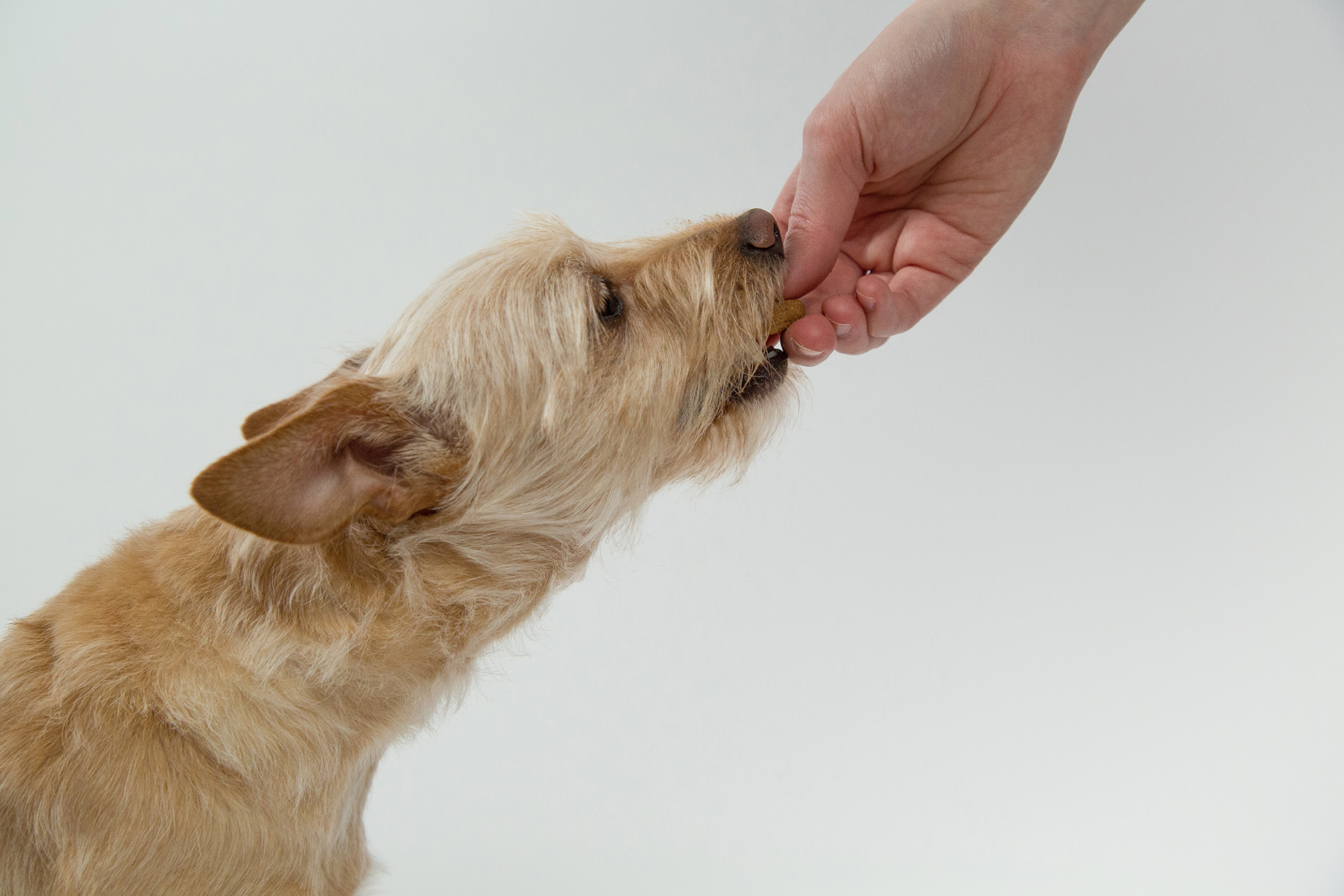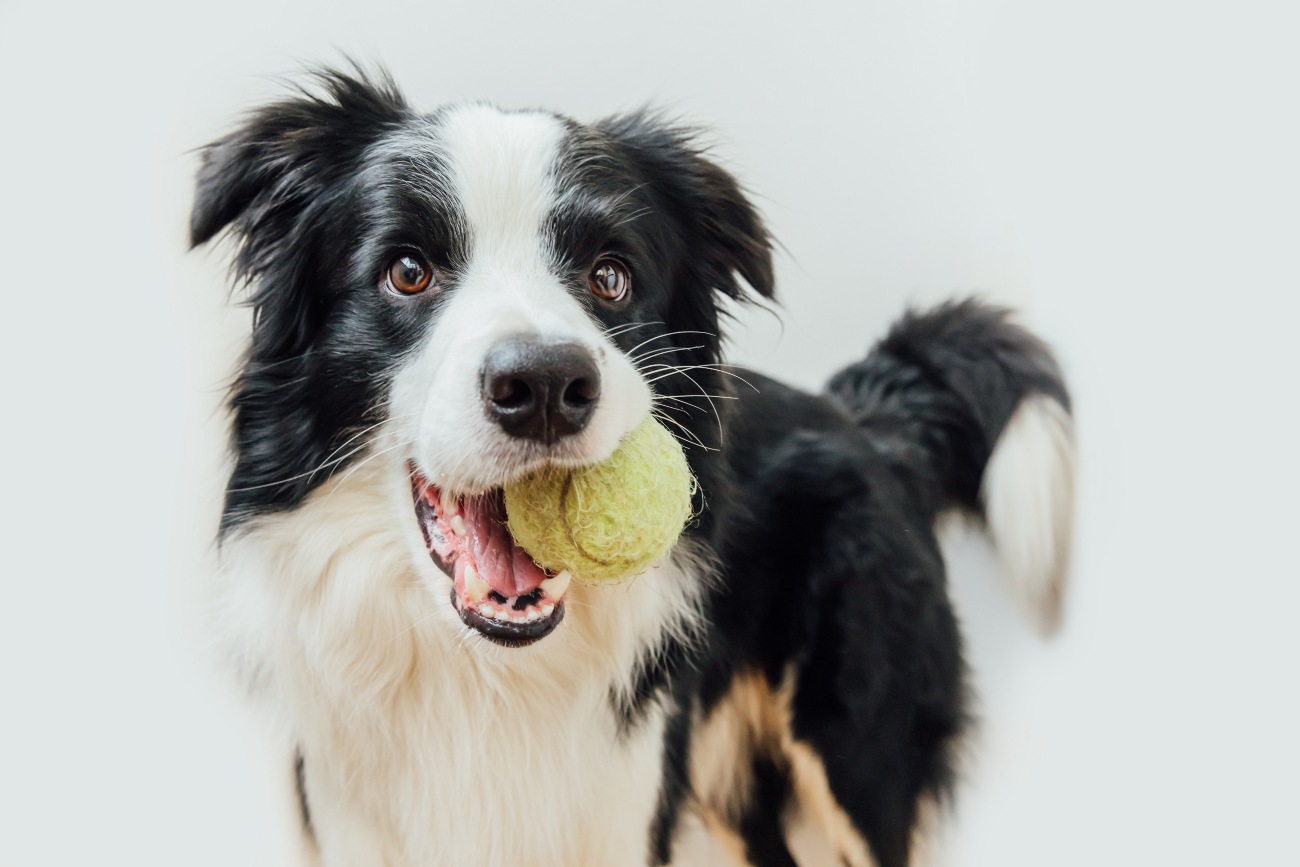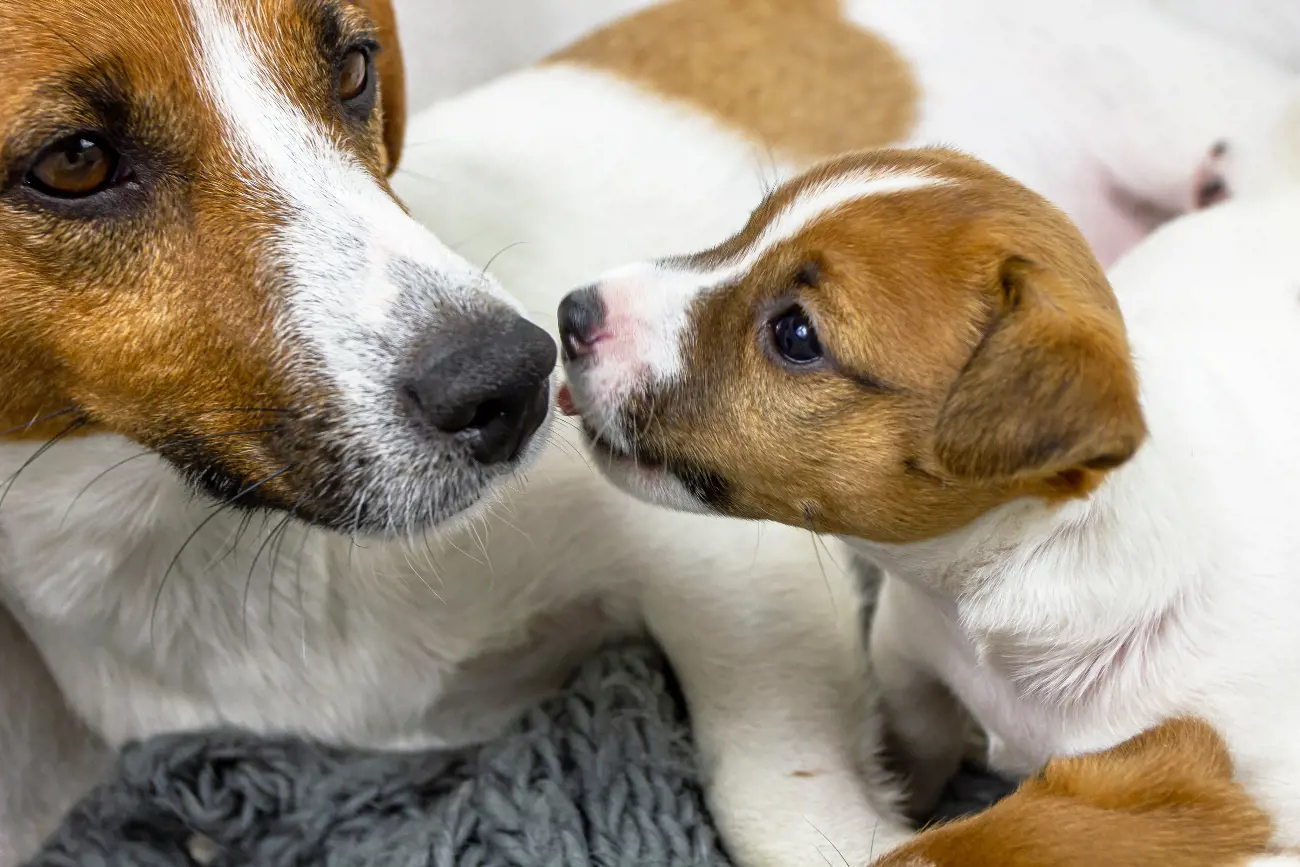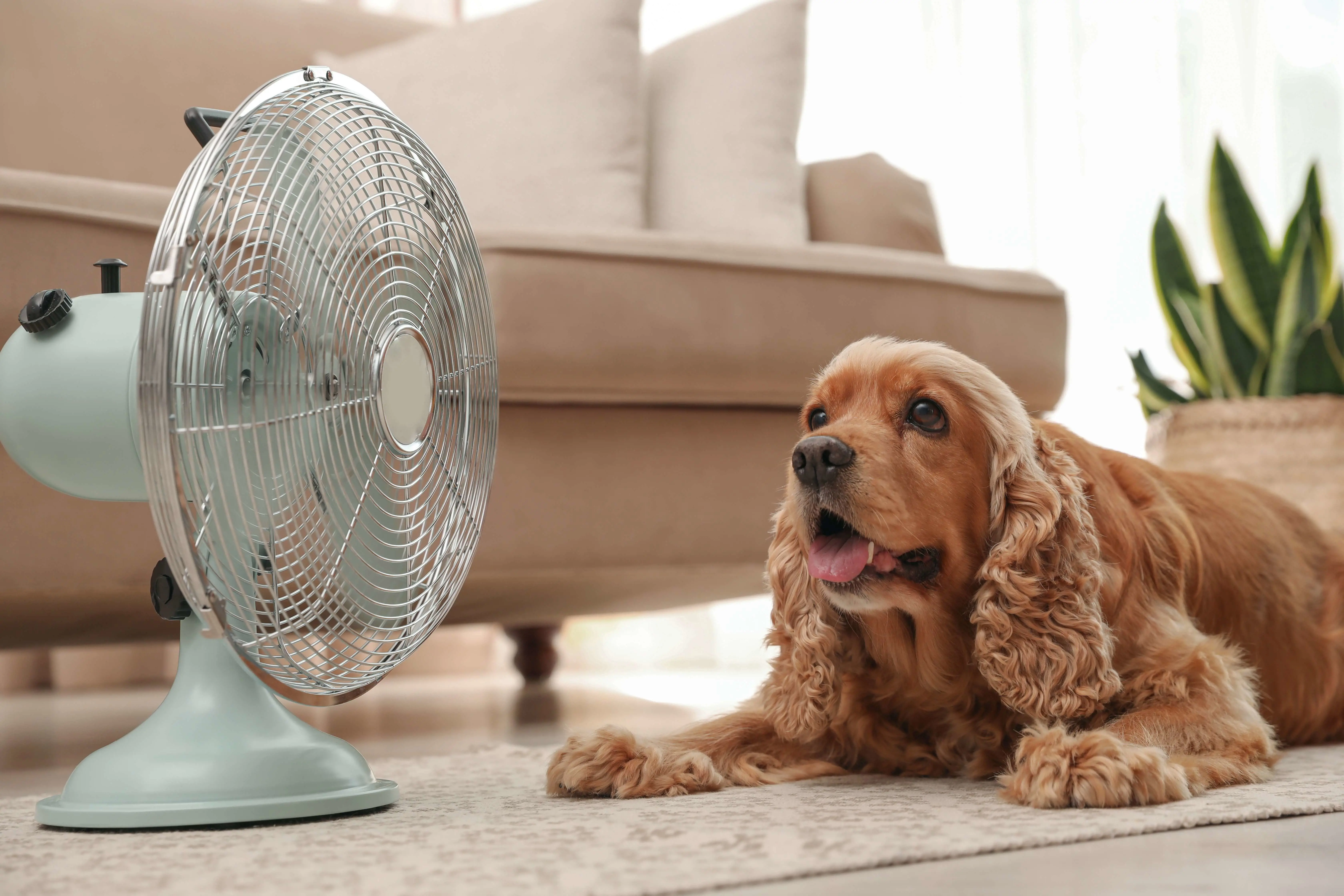Repetitive behaviour in dogs: What are the risk factors?
3rd April, 2024

Are you puzzled by your dog's repetitive behaviours? Maybe you've seen them endlessly chasing their tail or constantly licking their paws. Understanding why dogs engage in these behaviours can be a challenge. That's where this article comes in!
We'll explore the risk factors that contribute to repetitive behaviour in dogs, so you can gain insight into your furry friend's well-being. From genetic predispositions to environmental triggers, we'll delve into how factors like breed, age, and socialisation play a role.
We'll also discuss the potential impact of various other anxiety disorders, boredom, and medical conditions on your dog's behaviour. By unravelling the mysteries behind repetitive behaviour, you'll be better equipped to address it.
Let's embark on this journey together!

Key takeaways
- Lack of proper socialisation and mental/physical stimulation are key risk factors for repetitive behaviour in dogs.
- Traumatic experiences and genetic predisposition can also contribute to the development of repetitive behaviours.
- Early intervention and prevention, such as providing proper socialisation and a safe environment, are important in managing and preventing repetitive behaviours.
- Socialisation plays a crucial role in preventing repetitive behaviours, as it helps build confidence and reduces fear, anxiety, and boredom in dogs.
Early life experiences and repetitive behaviour
In your dog's early life experiences, certain factors can contribute to the development of repetitive behaviours. It's important to understand that dogs, like humans, are greatly influenced by their environment during their formative years:
- Lack of proper socialisation: Dogs that aren't exposed to a variety of people, animals, and environments during their early years may develop repetitive behaviours as a way to cope with unfamiliar situations.
- Lack of mental and physical stimulation: Dogs that don't receive enough mental and physical exercise may resort to repetitive behaviours as a way to alleviate boredom or excess energy.
- Traumatic experiences such as abuse or neglect during early life: These experiences can cause anxiety and fear, leading dogs to engage in repetitive behaviours as a way to self-soothe.
It's crucial to provide your dog with proper socialisation, mental and physical stimulation, and a safe and nurturing environment to prevent the development of repetitive behaviours.
Genetic factors and repetitive behaviour
Let's talk about the role of genetic factors in repetitive behaviour in dogs.
One important aspect to consider is the differences between breeds. Certain breeds may have a higher predisposition to engaging in repetitive behaviours due to their genetic makeup.
Understanding these breed-specific differences can help us better identify and manage repetitive behaviour in dogs.
Differences between breeds
Different dog breeds exhibit varying levels of repetitive behaviour, influenced by genetic factors. This means that certain breeds may be more prone to engaging in repetitive behaviours than others.
For example, some working breeds, such as Border Collies and German Shepherd dogs, are known for their high energy levels and intense focus, which can sometimes manifest as repetitive behaviours. On the other hand, breeds like Bulldogs and Basset Hounds are generally less likely to exhibit repetitive behaviours due to their genetic makeup.
It's important to note that while genetics play a role in predisposing certain breeds to repetitive behaviour, environmental factors also contribute to its development. Understanding these breed differences can help dog owners and trainers tailor their approach to managing and preventing repetitive behaviours in specific breeds.
Socialisation and repetitive behaviour
One important factor to consider when discussing repetitive behaviour in dogs is how socialisation impacts their behaviour patterns. Socialisation plays a crucial role in shaping a dog's behaviour and can greatly influence the development of repetitive behaviours.
When a dog is properly socialised, it learns how to interact with other dogs and humans in a positive and appropriate manner. This helps them build confidence, reduce anxiety, and prevent the development of repetitive behaviours.
On the other hand, dogs that lack proper socialisation may exhibit repetitive behaviours as a result of fear, anxiety, or boredom. For example, a dog that isn't exposed to different environments, people, and animals during its critical socialisation period may develop repetitive behaviours as a way to cope with unfamiliar situations. These behaviours can include excessive barking, spinning, tail chasing, or pacing.
Socialisation can also influence a dog's ability to adapt to changes and new experiences. Dogs that have limited socialisation may become overwhelmed or stressed when faced with unfamiliar situations, leading to the manifestation of repetitive behaviours.
Therefore, it's important for dog owners to prioritise socialisation from an early age to help prevent the development of these behaviours.
Environmental enrichment and repetitive behaviour
Now let's talk about how environmental enrichment can impact repetitive behaviour in dogs.
Stressful environmental factors can contribute to the development of behavioural problems in dogs, including repetitive behaviours.
By providing a stimulating and enriching environment, you can help reduce stress and promote more positive behaviours in your furry friend.
Stressful environmental factors and behavioural problems
Identifying stressful environmental factors is crucial in understanding the relationship between environmental enrichment and the development of repetitive behaviour in dogs.
Dogs are highly sensitive to their surroundings, and exposure to certain stressful factors can lead to the manifestation of behavioural problems. These factors can include noise pollution, lack of social interaction, confinement, and inconsistent routines.
Noise pollution, such as loud construction sounds or constant barking, can cause anxiety and distress in dogs. Lack of social interaction and isolation can lead to boredom and frustration, prompting dogs to engage in repetitive behaviours as a way to cope.
Confinement in small spaces can also contribute to stress and the development of repetitive behaviours. Inconsistent routines can disrupt a dog's sense of stability and predictability, leading to anxiety disorders.
By addressing these stressful environmental and behavioural factors, and providing appropriate environmental enrichment, we can help prevent and manage repetitive behaviour in dogs.
|
Stressful environmental factors |
Behavioural problems |
|
Noise pollution |
Anxiety, distress |
|
Lack of social interaction |
Boredom, frustration |
|
Confinement |
Stress, repetitive behaviours |
|
Inconsistent routines |
Anxiety |
Medical conditions and repetitive behaviour
If your dog frequently engages in compulsive behaviours, medical conditions may be a contributing factor. While repetitive behaviours can be caused by various factors, it's important to consider the possibility of underlying medical conditions for canine compulsive disorder. Just like humans, dogs can also suffer from certain medical conditions that can lead to repetitive behaviours.
For example, conditions such as obsessive-compulsive disorder (OCD), neurological disorders, and certain types of pain can trigger repetitive behaviours in dogs.
Obsessive compulsive disorders in dogs are characterised by repetitive actions like excessive licking, tail chasing, or compulsive pacing. These behaviours may provide temporary relief but can become compulsive disorders over time.
Neurological disorders, such as cognitive dysfunction syndrome (CDS), can also lead to repetitive behaviours in dogs. Dogs with CDS may exhibit repetitive actions like staring into space, circling, or getting stuck in corners.
In addition to mental and neurological conditions, dogs experiencing pain or discomfort may display repetitive behaviours as a way to cope or distract themselves. For instance, a dog with chronic joint pain may repetitively lick or chew on a specific area in an attempt to alleviate the discomfort.
Understanding the potential medical causes of repetitive behaviours in dogs is crucial for effective intervention and treatment. By addressing the underlying medical condition, it's possible to reduce or eliminate repetitive behaviours altogether.
Transitioning into the next section about training methods and repetitive behaviour, it's important to note that while training can help manage repetitive behaviours, it's equally essential to address any underlying medical conditions to achieve the best results.
Training methods and repetitive behaviour
To effectively address repetitive behaviour in dogs, utilising appropriate training methods is essential. Training methods play a crucial role in shaping a dog's behaviour and helping them overcome repetitive behaviours. Positive reinforcement training or reward based training is one of the most effective methods for reducing and preventing repetitive behaviours in dogs.
Positive reinforcement training focuses on rewarding desired behaviours and ignoring or redirecting unwanted behaviours. By using rewards such as treats, praise, and play, dogs learn to associate certain behaviours with positive outcomes. This method helps to reinforce alternative behaviours and discourage repetitive behaviours.
Another effective training method is desensitisation and counterconditioning. This technique involves gradually exposing the dog to the triggers or situations that elicit repetitive behaviours in a controlled and positive manner. By pairing these triggers with positive experiences, such as treats or play, dogs can learn to associate them with positive emotions and reduce their repetitive behaviours.
It is important to note that punishment-based training methods should be avoided when addressing repetitive behaviours in dogs. These methods can create fear, anxiety, and aggression in dogs, worsening their repetitive behaviours instead of resolving them.
Owner's influence on repetitive behaviour
Your influence as an owner plays a significant role in the development of repetitive behaviour in dogs. The way you interact with and train your dog can either promote or discourage repetitive behaviours.
Here are some key factors that can influence your dog's or abnormal repetitive behaviour:
- Lack of mental and physical stimulation: Dogs need both mental and physical exercise to stay balanced and prevent boredom. Without proper stimulation, dogs may engage in repetitive behaviours as a way to occupy themselves.
- Inconsistent training: Inconsistent training methods or lack of clear rules and boundaries can confuse your dog. This confusion can lead to anxiety and repetitive behaviours as a coping mechanism.
- Over-reliance on punishment: Harsh punishment or excessive use of aversive training techniques can cause fear and anxiety in dogs. This can result in the development of repetitive behaviours as a response to stress.
- Separation anxiety: Dogs with separation anxiety may engage in repetitive behaviours as a way to self-soothe when left alone. This behaviour can be intensified if the dog doesn't receive proper training and support to manage their anxiety.
- Reinforcement of repetitive behaviours: Unintentionally reinforcing repetitive behaviours by giving attention or rewards can inadvertently encourage the behaviour to continue.
Research supporting the ideas of repetitive behaviours in dogs
The survey of Finnish dog-owners also showed that sex, age, breed, sterilisation status and other behavioural problems such as aggressiveness and ADHD-like behaviour may make a dog more likely to show repetitive behaviours.
The findings have been published in the journal Scientific Reports.
“We found that repetitive behaviour was more common in male dogs as well as in sterilised or castrated dogs,” said doctoral researcher Sini Sulkama from the University of Helsinki. “In addition, repetitive symptoms were more common in young dogs, while they again became more prevalent in ageing elderly dogs.”
In senior dogs, repetitive behaviour may result from a progressive neurological syndrome known as canine cognitive dysfunction, or dog dementia.
The researchers also discovered a link between repetitive behaviour and the owner's dog experience. Repetitive symptoms are more common in dogs whose owners have not previously owned a dog compared to the dogs of owners with previous experience with dogs.
It's not clear why this is, but stress is known to increase the likelihood of repetitive behaviour and it's possible that more experienced dog owners are better able to provide their dogs with a less stressful setting. Or it could be that inexperienced owners just don't notice repetitive behaviour early enough, making it easier for such behaviour to become permanent.
Looking at different breeds, the German Shepherd, the Chinese Crested Dog and the Welsh Corgi Pembroke were among those in which repetitive behaviour was found to be more common.
Interestingly, there were also breed-specific differences between repetitive symptoms. For example, Border Collies and other herding dogs have a high predisposition to compulsive staring and snatching at ‘invisible' flies.
“Severe repetitive behaviour may significantly impair canine health as well as the interaction between the dog and the owner,” Sulkama added. “This is why identifying risk factors can benefit both dogs and their owners.”
Conclusion
Congratulations, you're now an expert in the fascinating world of repetitive behaviour in dogs! Armed with this knowledge, you can now navigate the mysterious realm of your furry friend's behaviours with confidence.
Remember, whether it's genetic factors, early life experiences, or environmental enrichment, there are always underlying reasons behind those tail-chasing and paw-licking antics.
So, next time your pup starts their repetitive routine, embrace the mystery and embark on a journey of understanding together. Who knows, you might just uncover the secrets of the canine mind!
Dog insurance from Purely Pets can help you provide your four-legged friend with care they need to make a swift recovery if they fall sick or get injured. And as a policyholder you'll also have access to our unlimited 24/7 consultations with Joii, where you can get in touch with experienced veterinary nurses to discuss any queries about your dog's health.
Helpful Pages
Recent Posts
Pet Insurance Quote
- 98% claims paid *
- Claims paid directly to vets
- 24/7 vet video consultations
- Interest free monthly payments




